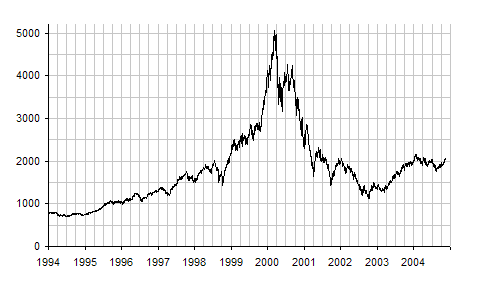Trading for Living
- Introduction to US Index Futures
- Understanding the Indexes
- The S&P 500 Index
- Fundamental Analysis
- Technical Analysis
- Medium Term Trading Strategies
- Long Term Investing Strategies
- Trading Psychology
- Money Management Techniques
- Trading Systems and Platform
- Legality and Taxation
- Building a Trading Plan
- Final Project and Course Wrap-up
Trading Psychology
Emotional Control and Decision-Making in Trading

Buying and selling financial instruments within the same trading day.
Trading is not just about understanding the markets and making informed decisions based on data and trends. It's also about managing your emotions and making decisions under pressure. This is where emotional control and decision-making come into play in trading.
The Role of Emotions in Trading
Emotions play a significant role in trading. They can influence our decisions, often leading us to make impulsive and irrational choices. Fear and greed are two of the most common emotions experienced by traders. Fear can cause us to exit a trade too early or prevent us from taking a profitable opportunity. On the other hand, greed can lead us to hold onto a position for too long in the hope of making more profit, often resulting in losses.
Techniques for Managing Emotions While Trading
Managing emotions while trading is crucial for success. Here are some techniques that can help:
-
Develop a Trading Plan: A well-thought-out trading plan can help you stick to your strategy and avoid making decisions based on emotions. It should include your goals, risk tolerance, and specific criteria for entering and exiting trades.
-
Practice Mindfulness: Mindfulness involves staying present and focused on the task at hand. It can help you stay calm and composed, even when the market is volatile.
-
Take Regular Breaks: Trading can be stressful, and it's essential to take regular breaks to avoid burnout. This can also help you maintain a clear mind and make better decisions.
The Impact of Stress on Trading Decisions
Stress can have a significant impact on your trading decisions. It can cloud your judgment, leading to poor decision-making and potential losses. It's essential to recognize when you're feeling stressed and take steps to manage it. This could involve taking a break, practicing relaxation techniques, or seeking support from others.
The Role of Discipline in Successful Trading
Discipline is a crucial component of successful trading. It involves sticking to your trading plan, even when things don't go as expected. It also means not letting emotions drive your decisions and being able to cut losses when necessary. Developing discipline takes time and practice, but it's an essential skill for any successful trader.
In conclusion, emotional control and decision-making are critical aspects of trading. By understanding the role of emotions in trading, using techniques to manage these emotions, recognizing the impact of stress, and developing discipline, you can improve your trading performance and make more informed decisions.